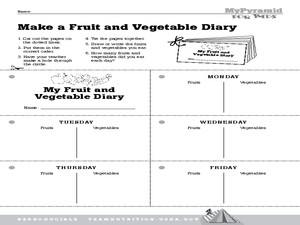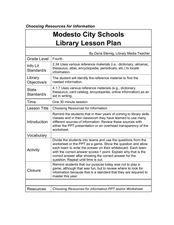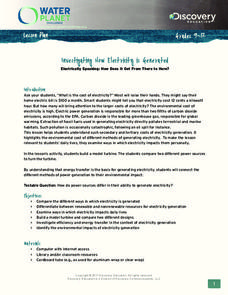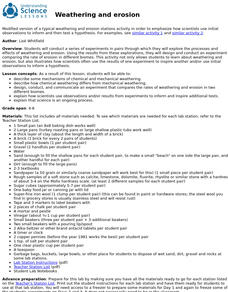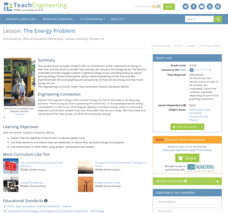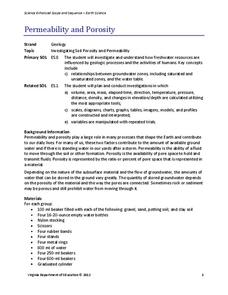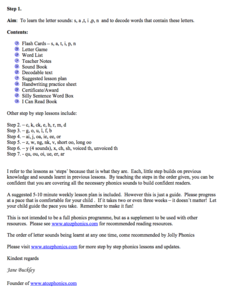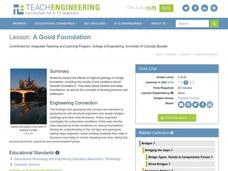Curated OER
Lesson 3: Vary Your Veggies and Focus on Fruits
Students explore fruits and vegetables. In this nutrition instructional activity, students generate a list of all known fruits and vegetables. Students cut out and compile pages for a weekly fruits and vegetable...
Curated OER
Which reference book helps most?
Fourth graders utilize various reference materials to find specific types of information. In this library research lesson, 4th graders choose the best source of information from the library's reference collection to answer questions.
Council for Economic Education
Paper Money of the Sung, Yuan, and Ming Dynasties
Why did the Chinese develop paper money? They were the first society to use paper currency. Learners consider why paper money was more convenient than other mechanisms of trade using a helpful lesson plan, which includes a graphic...
EarthEcho International
Investigating How Electricity is Generated
What is the real cost of electricity? The real cost is not just the price you pay, but the environmental and economic costs as well. Scholars build, use, and judge the effectiveness of a turbine. They also investigate the...
American Library Association
Even and Odd Numbers: Lesson Plans and Sample Problems
If your youngsters are new to numbers, here are several interactive strategies to get them thinking about even and odd numbers. For example, they can count the number of desks, people, etc. in the room and determine if it is even or odd....
University of California
Weathering and Erosion
Just how powerful is erosion? Interested scientists learn how to identify the results of erosion with a series of lab activities. They move through stations to experiment with different types of erosion and then design and complete their...
Curated OER
Nutrition Lesson Plan
Second graders complete a survey as class answering the question: "Did you eat breakfast this morning?". They place a tally mark in the column that best represents their answer. They then discuss the results in the graph.
Teach Engineering
The Energy Problem
Think you can solve the energy problem? You'll first need to know about current energy use. Analyzing a set of circle graphs lets scholars see where energy consumption is the greatest, both by sector and by household use. They develop a...
Macmillan Education
Networking
"It's not what you know, it's who you know." Learners discuss and analyze this age-old adage by completing life skills worksheets, collaborative activities, and discussions regarding the nature of networking and how it may improve future...
Virginia Department of Education
Permeability and Porosity
Covering both permeability and porosity, scholars perform a hands-on experiment testing various soil types. The material includes a pre-lesson worksheet to help focus pupils on the task at hand.
Newseum
The Medium Shapes the Message
Where do you get your news? Have learners examine four different publications and decide which one they would choose to read on their own time. The resource includes a list of publication types to supply and a worksheet for groups...
Teach Engineering
Food Chains and Food Webs - Balance within Natural Systems
Feast on an informative resource. Scholars learn about food chains and food webs and how these interactions give information about the natural community. A PowerPoint presentation provides information about this concept.
Teach Engineering
Electricity and Magnetic Fields
Introduce your class to the idea of magnetic fields around electrical wires with an activity that provides the information about the direction of a magnetic field around a wire carrying an electric current.
Pearson
Performance Based Assessment Practice Test (Algebra II)
A full-length practice test like this one, especially one that includes a number of open response questions, is a phenomenal tool in a class as rigorous as algebra 2. Here the learners can really get that hands-on experience...
Pearson
Performance Based Assessment Practice Test (Geometry)
The incredibly broad topic base of a geometry class makes full-length practice tests like this one, especially ones that include a number of open response questions, invaluable. Here the class can really get that hands-on...
A to Z Teacher Stuff
My Sound Book
Work with learners on a handful of letter sounds with a helpful language arts packet. The packet focuses on letters s, a, t, i, p, and n with tracing lessons and flash cards.
Teach Engineering
A Good Foundation
It takes a strong foundation to build a house and a stronger one for a bridge. This resource presents the effects of geology and soil on bridge foundations. Working in groups, the class investigates the interaction of shallow and deep...
Teach Engineering
The Great Pacific Garbage Patch
The Great Pacific Garbage Patch is one of several garbage patches around the world where garbage accumulates naturally. As part of a GIS unit that combines oceanography, environmental science, and life science, class members investigate...
Baylor College
Energy Sources
Take the concept of burning calories to a more literal level in the second of seven lessons about energy in the realm of food and fitness. Using simple materials, groups will burn breakfast cereal and a pecan to see which one gives off...
Howard Hughes Medical Institute
Sorting Finch Species
Don't just tell your class about Darwin's finches ... show them! Sort some of science's most famous birds using an interactive lesson. Learners try their hand at classifying finches using song, sonogram, and beak appearance, as well as...
Anti-Defamation League
7 Ideas for Teaching Women's History Month
Celebrate Women's History Month with hands on-learning. The resource provides seven strategies to help educators teach Women's History Month, ranging from watching films to reading books written by women. Activities including writing...
Chicago Botanic Garden
Weather or Not
What is the difference between weather and climate? This is the focus question of a lesson plan that takes a deeper look at how weather data helps determine climate in a region. Using weather and climate cards, students decide...
Newseum
Evidence: Do the Facts Hold Up?
Sometimes it's hard to escape bad information! Pupils learn the E.S.C.A.P.E. method for evaluating news sources and complete a worksheet to assess a news article using their new skills.
Science Matters
Hierarchy
A system is only as good as the sum of its parts! Young scholars explore the components of the different body systems using a hands-on lesson. The lesson helps learners build an understanding that there is a hierarchy of components in...
